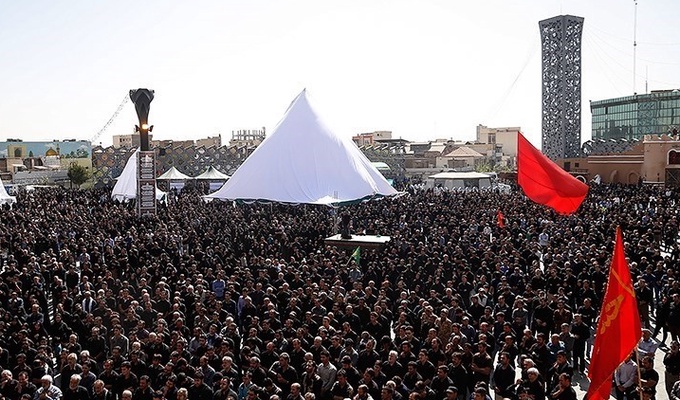Muḥarram is the first month of the Islamic calendar. It is one of the four sacred months of the year when warfare is forbidden. It is held to be the second holiest month after Ramadan.
The tenth day of Muharram is known as Ashure. Better known as part of the Mourning of Muharram, Shi'a Muslims mourn the tragedy of Ḥusayn ibn ʿAlī's family.
Shiites mourn the martyrdom of Ḥusayn by abstaining from joyous events. Instead, Shia Muslims hold many events to offer condolences to Imam Husayn and to honor the martyrs by prayer, reading supplications, and holding charity events. Shiʿi Muslims eat as little as possible on the Ashura; however, this is not seen as fasting. Alevis fast ten or twelve days, each day for one of the Twelve Imams of Shiʿa Islam, to commemorate and mourn the Imams, as if a very close relative has died. Some (excluding children, elderly or sick) do not eat or drink, avoid entertainment until zawal (afternoon) as a part of their mourning for Husayn. In addition, there is an important ziyarat book, the Ziyarat Ashura about Ḥusayn. In Shiʿism, it is popular to read this ziyarat on this date.
